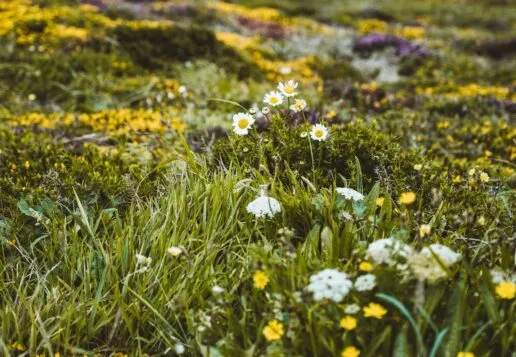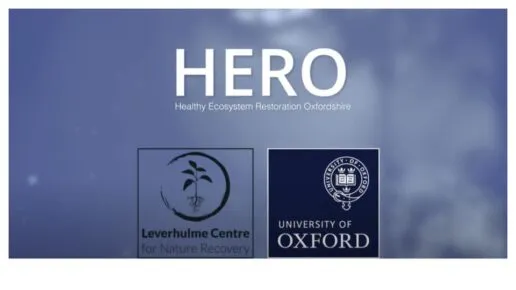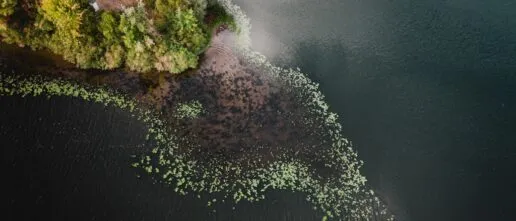With its active network of nature recovery groups, Oxfordshire presents a unique opportunity to test and showcase a portfolio of different ecosystem restoration strategies, to become a model county for nature recovery.
Our work in this landscape aims to build a community of practice between the University and local practitioners, and will also form a resource for the University and its constituent Colleges within broader institutional sustainability goals.
Related Projects
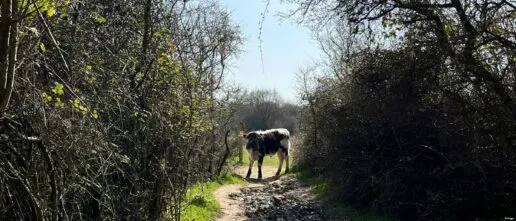
Revealing the compositional and functional responses of mycorrhizal fungi to rewilding at the Knepp Wildland
Using novel eDNA methods to understand if rewilding is also serving below-ground communities, focusing on 'keystone' mycorrhizal communities and their functions.
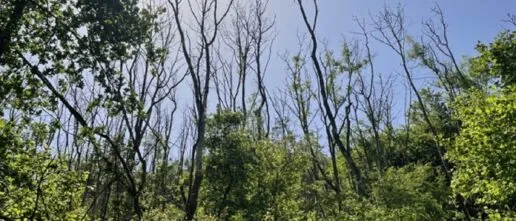
Exploring the ecological effects of forest pests and diseases in a changing world
We leverage experimental and synthesised data approaches to create integrative models that predict the effects of pests and pathogens on forest ecology.

Community values in accessible urban green spaces and planning: An Oxford case.
Investigating community values in accessible urban green spaces and assessing the equity of urban green governance across different socio-economic areas of Oxford.

The role of regenerative farming for biodiversity and ecosystem functioning
We utilise both standardised and cutting-edge methods to explore biodiversity and ecosystem functioning along a land use gradient to better understand the role of regenerative farming.
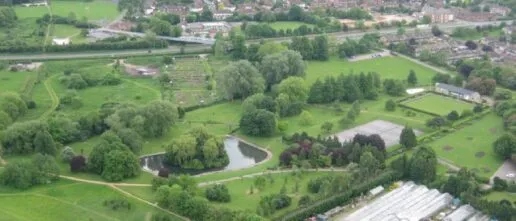
Equitable distribution of nature-rich accessible green space: An Oxfordshire case study
Investigating the distribution of freely accessible green space in Oxfordshire in relation to socio-economic status to inform local green space planning.

Healthy Ecosystem Restoration in Oxfordshire
Developing the local Oxfordshire landscape as a case-study, nature-recovery laboratory and community of practice.

Financing local nature recovery in Oxfordshire
Understanding the scale of the opportunity to fund nature recovery with offsite Biodiversity Net Gain (BNG) payments.
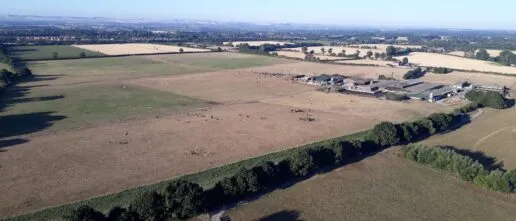
Oxfordshire Treescape Project
Supporting Oxfordshire land managers, parishes and communities with nature recovery planning.

Evenlode Landscape Recovery
Lead by the North East Cotswold Farming Cluster and funded by DEFRA as apart of the Environmental Land Management schemes, the project aims to expedite the transition to a financially and environmentally sustainable farming system through nature recovery efforts.
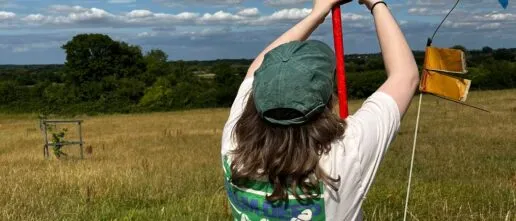
Ecoacoustics for assessing ecosystem health and function, from air to soil
Developing scaleable, transferable, and open approaches for ecoacoustics to assess nature recovery across global ecosystems
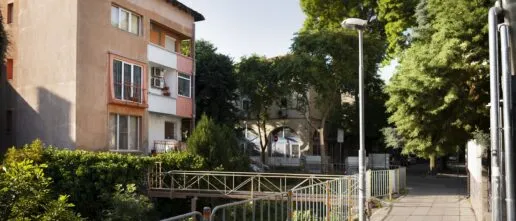
Oxford Policy Engagement Fellowship: Developing a green infrastructure equity tool
A collaborative project with Plymouth City Council and the Woodland Trust to develop and trial a tool to identify neighbourhoods that are socioeconomically deprived and lack access to green space.

The role of volatile organic compounds in physical and mental wellbeing outcomes
Determining the mechanism through which volatile organic compounds released by plants can influence our physical and mental wellbeing.

How do we account for biodiversity?
Restoring nature in a socially just way, in the context of economic development activities.

eDNA, environmental knowledge and biodiversity governance
In what ways are novel environmental DNA techniques changing how environments are monitored, understood and governed?

Nature for student’s life: The impact of outdoor greenness on mental wellbeing and chronic absenteeism
Does greenness matter to student mental wellbeing and attendance
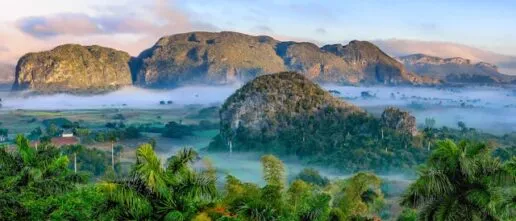
Designing effective Nature Restoration Funds in theory and practice
Collating the evidence from theory and nature restoration funds around the world to inform the next generation of conservation compensation funds
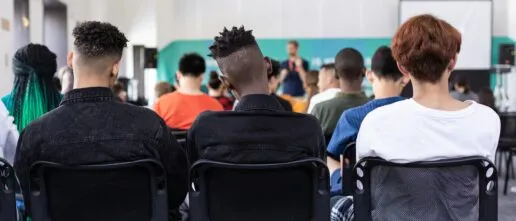
Educating Teenagers for Nature Recovery
How can we engage secondary schools and teenagers with nature?
Related Outputs
Equity in Urban Green Space Access and Governance: an interdisciplinary Oxford case study.
Martha Crockatt and Mattia Troiano have been exploring equity of urban greenspace in Oxford communities. Here they present findings from their interdisciplinary research, which has used a wide range of methods to explore the implications of adopting a recognitional equity approach when thinking about access to greenspace and participation in its governance, culminating in a […]
Landscape Connectedness Under Climate Change in Oxfordshire
Projected climate futures force us to rethink the way we approach nature. The concept of conservation breaks down as we are forced to consider a changing ecology, with new assemblages of species, and a shift from a relatively steady state to dynamic, continuous change. Our goal becomes the preservation of functioning natural systems, supporting the […]
Oxford Nature Conversations Project Citizens’ Jury on People & Nature
In February 2025, Oxford Nature Conversations brought together 15 residents to collaboratively envision a future where both people and nature can thrive in Oxford. Over the course of four deliberative workshop days, participants engaged in structured discussions, expert presentations, and collaborative exercises to explore environmental challenges and opportunities in the city. This inclusive process resulted […]
Oxfordshire’s greenspace-deprived neighbourhoods
Coordinating author: Martha Crockatt This report explores Natural England’s Green Infrastructure data to identify neighbourhoods in Oxfordshire experiencing both socio-economic deprivation and poor provision of accessible greenspace, with a view to these neighbourhoods being prioritised in terms of planning, allocation of funding, and effort for improving quality and quantity of accessible greenspace. Contributors: Matt Witney […]
HERO Workshop #2 Report: Mapping, Assessment & Tracking of Land Availability & Nature Recovery Activities in Oxfordshire
This second workshop focuses on the second of those priorities: Mapping, assessment and tracking of land availability and nature recovery activities.
Art and Nature in The Leys
A free, drop-in family-friendly event led by researchers Martha Crockatt and Mattia Troiano, developed in collaboration with Natasha Summer, a local community champion, and in partnership with the Oxfordshire African Caribbean Multicultural Society. It was funded by the Economic and Social Research Council’s Festival of Social Science.
Social Dimensions of Nature Recovery Across Oxfordshire
Report arising from a workshop highlighting the importance of understanding how land use governance, different systems of knowledge and values, and differences in people’s financial means and access to natural areas shape socio-ecological systems.
A compass toward a thriving and resilient Oxfordshire, the Oxfordshire Doughnut project, final report to Oxfordshire County Council
This report represents the first steps toward an Oxfordshire re-imagining economics to serve thriving futures - a future where the needs of all citizens are met
